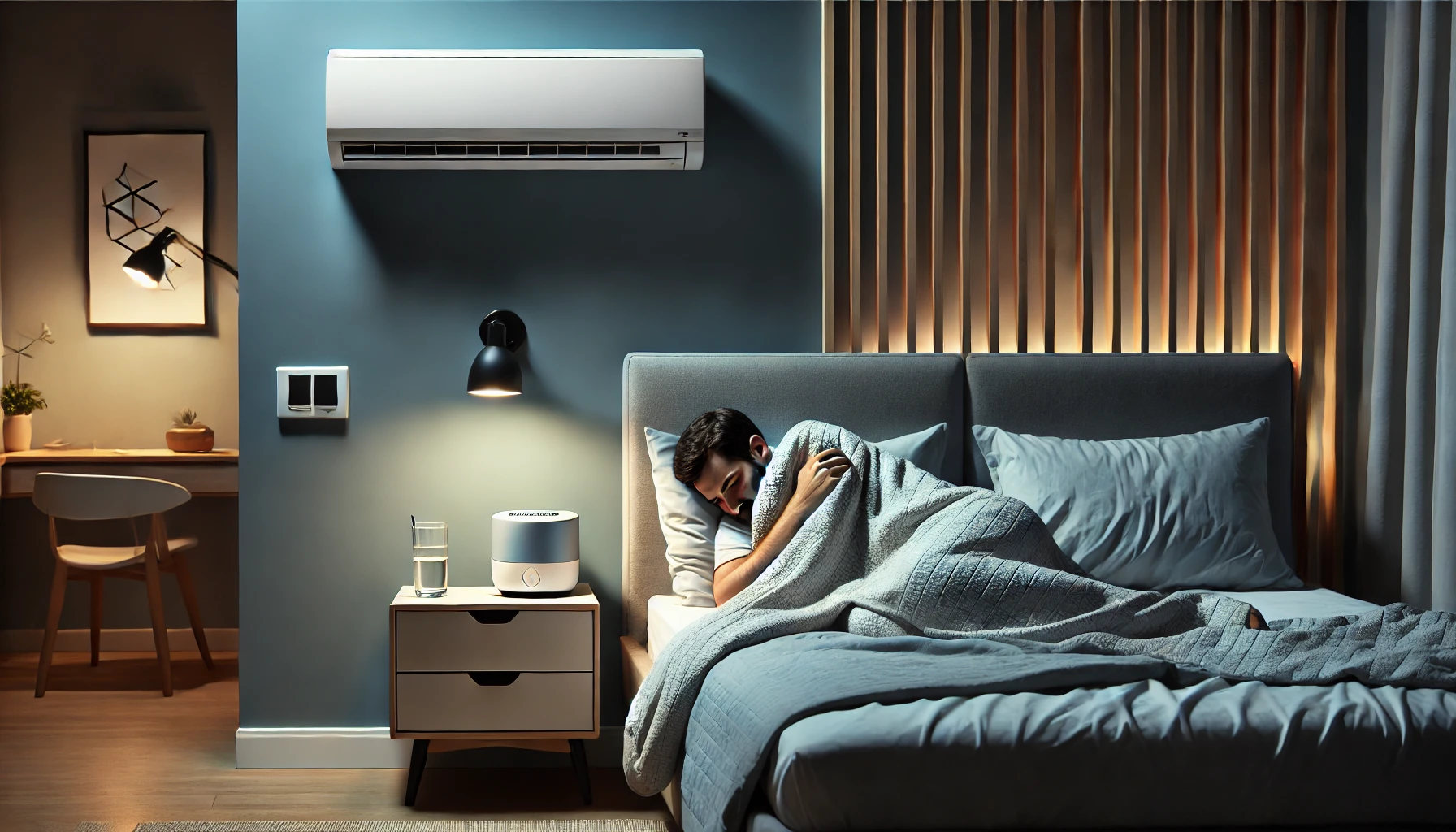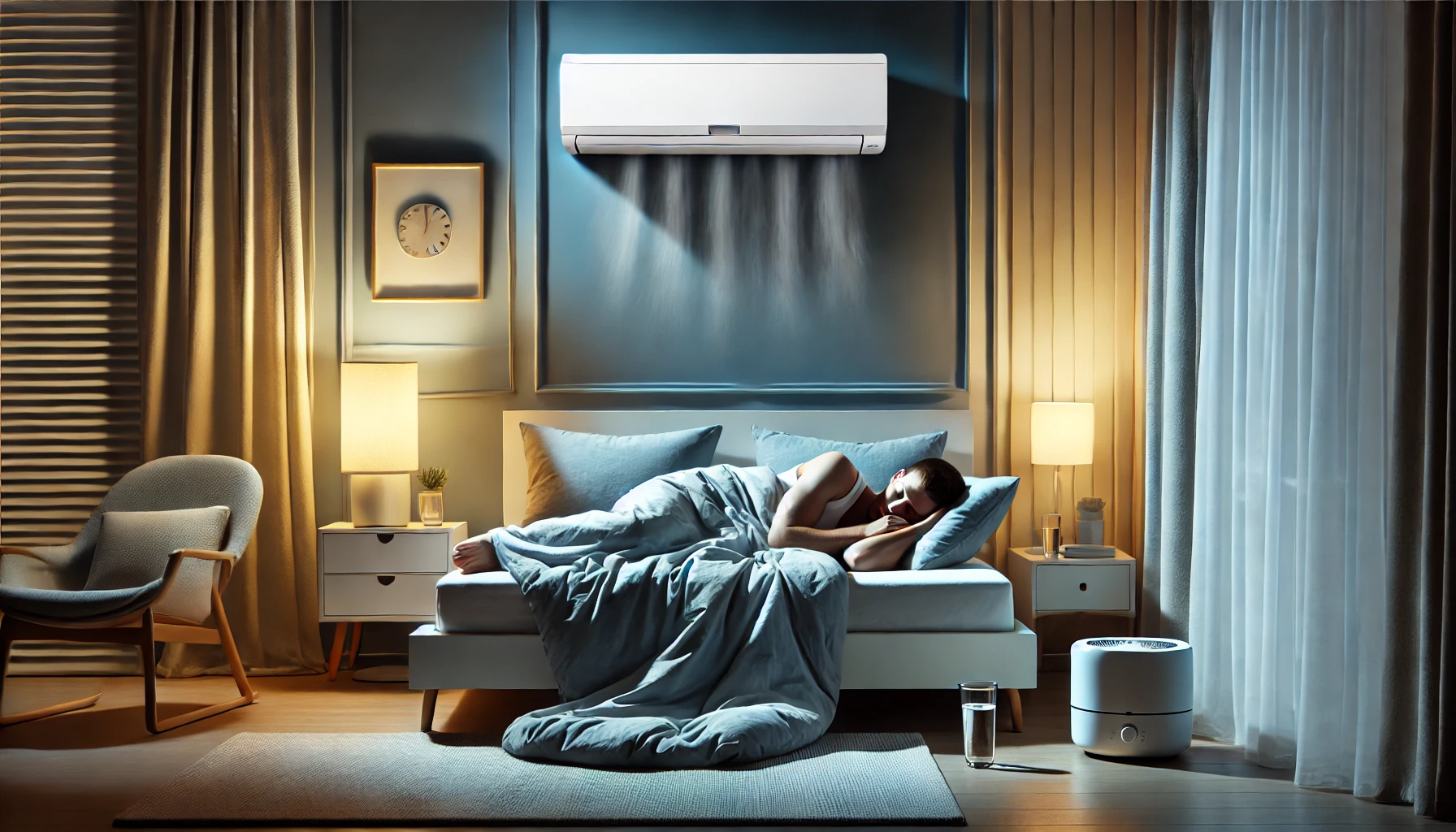A recent case of a British woman, Liana Foster, highlights the potential health risks associated with sleeping with air conditioning (AC) on overnight. While staying in a Turkish hotel, Foster developed severe tonsillitis and was hospitalized. Initially mistaking her symptoms for COVID-19, she later discovered that moldy air from the AC unit was likely the cause. FosterтАЩs experience underscores the importance of understanding how AC use can impact our health.
Introduction
Air conditioning provides much-needed relief during sweltering summer days and nights. However, spending too much time in an air-conditioned room or sleeping overnight with the AC on can lead to several health issues. According to doctors, the cool air produced by AC units can cause dryness, dehydration, and other adverse effects.
Health Issues Caused by Air Conditioners
1. Dry Skin and Eyes
The cold air from the AC lowers humidity levels, which can leave your skin and eyes feeling dry. This dryness can cause discomfort, irritation, and strain on your eyes, leading to increased discomfort over time.
2. Respiratory Health
Air conditioners can irritate the respiratory system, leading to symptoms like coughing, wheezing, chest tightness, and shortness of breath. Poorly maintained AC units can also spread allergens and airborne pollutants, exacerbating respiratory issues for sensitive individuals.
3. Muscle Stiffness and Pain
Sleeping in a cold room can cause muscle and joint pain, especially if you are exposed to cold air for an extended period. Cold air can aggravate joint pain and muscle stiffness, leading to conditions like arthritis and other musculoskeletal issues.
 4. Fatigue
4. Fatigue
Sleeping in a cold, dry air-conditioned room can impair sleep quality, resulting in fatigue and a sense of being unwell. This can lead to grogginess and reduced productivity the next day, negatively impacting overall well-being.
5. Disturbed Sleep Patterns
AC units can disrupt sleep patterns and reduce sleep quality. Cold temperatures and the noise from AC units can cause discomfort and frequent awakenings, preventing restful sleep.
6. Spread of Infectious Diseases
Improperly maintained air conditioning systems can spread infectious diseases by circulating bacteria, viruses, and fungi. Regular cleaning and maintenance are crucial to reduce the risk of respiratory infections and illnesses.
Tips to Prevent Health Issues from Air Conditioning
- Set the Thermostat Between 22┬░C and 26┬░C: Avoid excessive cold by keeping the temperature within this range.
- Use a Humidifier: Maintain optimal humidity levels to prevent dryness.
- Regularly Service and Clean Your AC Unit: Prevent the spread of dust and allergens by keeping your AC well-maintained.
- Ensure Good Room Ventilation: Use air purifiers to improve air quality.
- Stay Hydrated: Drink plenty of water to counteract dehydration.
- Wear Suitable Clothing: Dress comfortably for cooler indoor temperatures.
- Use Indoor Air Quality Monitors: Check humidity and pollutant levels regularly.
- Position AC Vents Appropriately: Avoid direct exposure to cold air while sleeping.
Conclusion
Limiting the time spent in air-conditioned rooms and setting the temperature to a comfortable level can help avoid health issues. Additionally, itтАЩs important to consider the environmental impact of excessive AC use. Increased electricity consumption from AC units contributes to higher greenhouse gas emissions, exacerbating global warming and climate change. By using AC responsibly and maintaining proper health precautions, we can enjoy the benefits of cool air without compromising our health or the environment.







